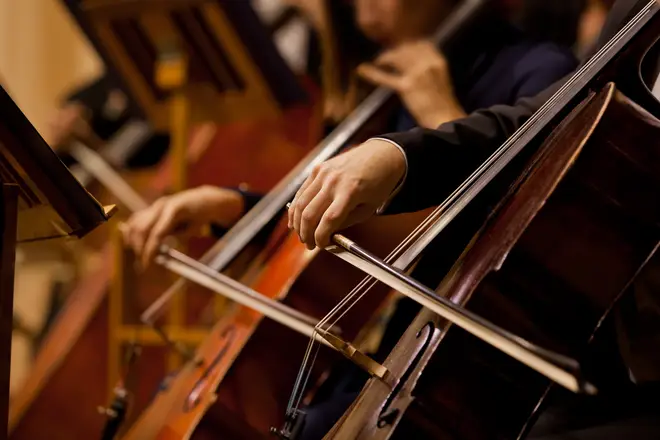‘Musicians should receive 50/50 royalties from streaming services’ – MPs condemn current ‘16%’ rate
15 July 2021, 09:59 | Updated: 15 July 2021, 15:55

Major parliamentary committee report states that music streaming needs a complete reset, so that artists can be paid fairly for their work.
Last year, leading British violinist Tasmin Little revealed that for five to six million streams of her recordings, she had earned just £12.34. Artists from all genres have since joined the conversation, with even successful pop stars decrying the meagre earnings they receive from major streaming services.
Now, a UK parliamentary committee has published a 121-page report on the economics of music streaming, following a six-month inquiry into what is, and isn’t, working for music-makers in the streaming era.
It’s the first time any lawmakers have investigated whether artists are getting their fair share, or whether record labels and streaming services are taking an unfair cut.
In the report, the Digital, Culture, Media and Sport Select Committee (DCMS) calls for a “complete reset” of the market.
They are urging for royalties to be split 50/50 between artists and record labels, as is the case for music broadcast on the radio or TV, instead of the current streaming model where artists receive around 16 percent. UK record labels currently earn £736.5 million from streaming.
Read more: ‘87p for over 1,000 streams?’ – musicians hit out at meagre streaming earnings

150 opera singers fight for the arts in Parliament protest
To form the report, the committee spoke to some named artists including Nile Rodgers and Nadine Shah, along with others who chose to remain anonymous, citing a fear of upsetting industry power brokers. Many decried the “pitiful returns” they receive from music streaming.
Kevin Brennan, an MP on the committee, said in a Twitter thread: “Streaming has helped save the music industry following two decades of digital piracy but it is clear that what has been saved does not work for everyone.
“Issues created by streaming reflect fundamental problems within the recorded music industry. Streaming needs a reset.”
The government is being called to introduce changes to platforms’ business models, to make streaming more profitable for composers and songwriters. The report also calls on playlist curators to disclose paid promotions, as influencers do for sponsored content on social media.
The DCMS report also recommends investigating the relationship major record labels have with streaming services, which currently “allows them to benefit at the expense of independent labels and self-releasing artists, particularly regarding play listing”.
Read more: Spotify boss blames musicians for lack of earnings, says they should make more music

Let Music Live protest on London's Parliament Square
In a statement, Julian Knight, the committee’s chair, said, “While streaming has brought significant profits to the recorded music industry, the talent behind it – performers, songwriters and composers – are losing out. Only a complete reset of streaming that enshrines in law their rights to a fair share of the earnings will do…
“We have real concerns about the way the market is operating, with platforms like YouTube able to gain an unfair advantage over competitors and the independent music sector struggling to compete against the dominance of the major labels.”
The report has won praise from major UK music bodies, including the Musicians’ Union, the Ivors Academy and the #BrokenRecord Campaign, who urged the government in a joint statement to implement the committee’s recommendations.
“This cross-party report is revolutionary,” said Horace Trubridge, general secretary of the Musicans’ Union. “It grasps the issue, identifies the problems and recommends achievable and practical solutions, which won’t cost the taxpayer a penny.
“It’s time to make the most of this rare, cross-party consensus, bring British copyright law up to date, show Global Britain leading the fight to protect the intellectual property of artists and creators, and make the UK the best place to be a musician.”


































